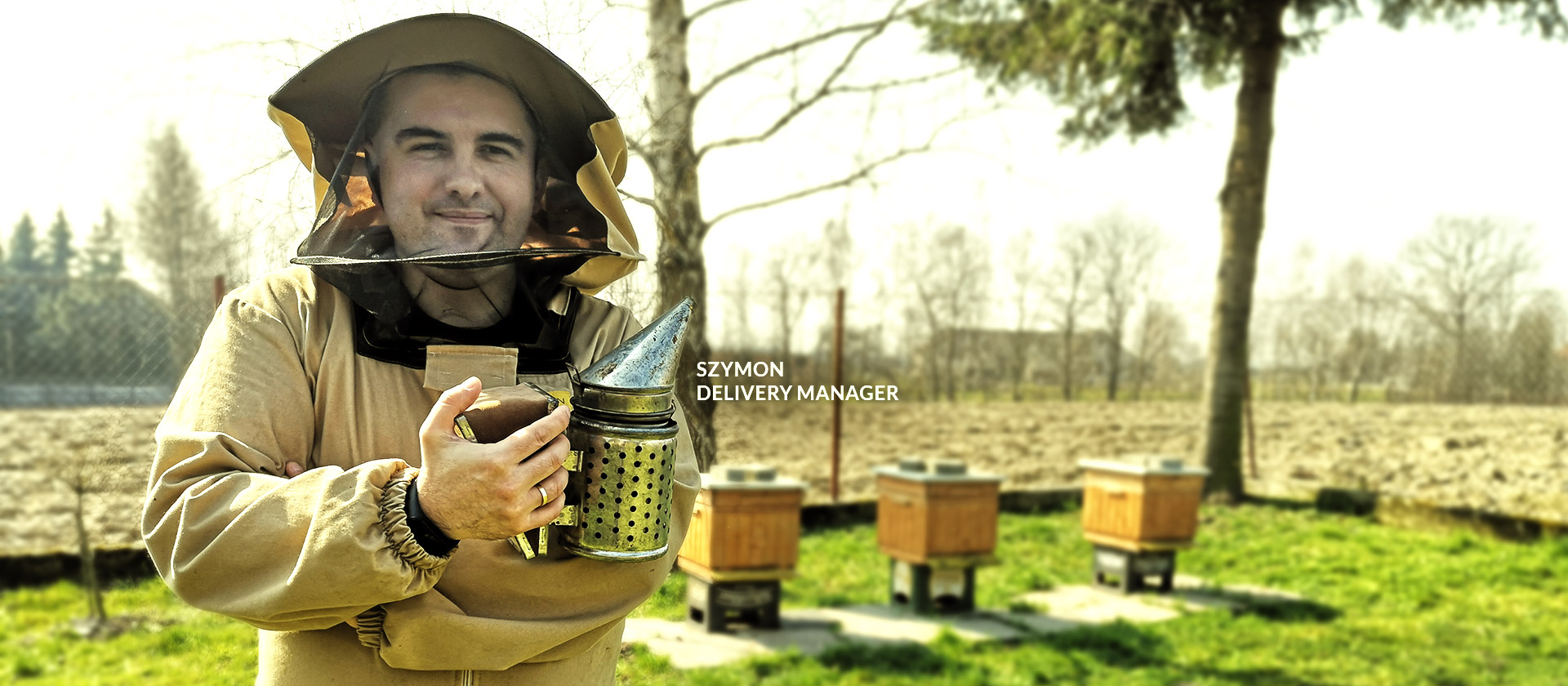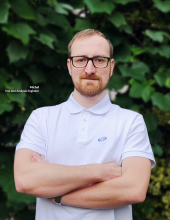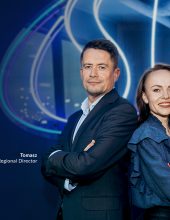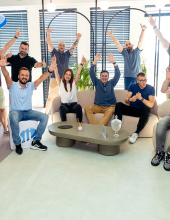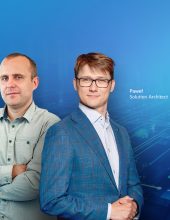Sii Power Bee – a new ecological project of Sii Poland under the Passion Sponsorship Program
Szymon Bochniak, Delivery Manager at Sii Kraków, has been passionate about beekeeping for 3 years. As part of the 6th edition of the Passion Sponsorship Program, Szymon received funding and creates the ecological Sii Power Bee project – Honey Delivery Manager. We checked how his adventure with bees began, what the eco project is all about and why we should protect bees.
Where did your interest in bees come from?
Szymon Bochniak, Delivery Manager: Beekeeping is often a family-cultivated occupation that has been passed down from generation to generation. In my case, I didn’t have anyone with that interest in my family, but a very good friend of mine hooked me up with this unusual hobby. After listening to hundreds of interesting stories and doing a lot of research on beekeeping, I decided to give it a try.
How did you start keeping bees? What is the process of setting up an apiary?
S.B.: For a person starting from scratch, as it was in my case, it is necessary to purchase a fairly large stock of beekeeping equipment, as well as the purchase of bee families. This can be a considerable expense, but it’s worth starting from a small scale and developing an apiary step by step. Pure Agile
I strongly recommend using locally organized beekeeping groups gathering enthusiasts of this occupation. They are incredibly helpful people with extensive experience, you can always count on them.
How much time do you have to spend working in the apiary? What months keep you busy the most? Does anyone help you?
S.B.: Beekeeping is basically animal husbandry. In the period between April – September, it requires quite a lot of work, regular care and looking after bees. As I take care of bees myself, my apiary holds only 3 bee families. At the moment I do not intend to enlarge it, precisely because of the time needed to work with bees. Nevertheless, this hobby gives incredible satisfaction from the observable effects bees at work and tasty honey.
There is a perception that bees, like wasps, are dangerous and sting. Should we really be afraid of them?
S.B.: Bees are not aggressive by nature, although you can find bee families with a high temperament. Beekeepers should take care of promoting peaceful families that practically do not sting. However, you need to be aware that there are people who are allergic to bee venom, who should not be get close to them.
There is a huge discussion about the fact that there are fewer and fewer bees, they are dying out. You can even adopt a bee. Why is this happening? What harms bees?
S.B.: The phenomenon of mass disappearance of bees is very strongly manifested in the United States and is caused by the industrial use of these bees. In other countries such as China, the massive and unregulated use of chemicals in agriculture is affecting the large decline in honeybee numbers. Currently, the number of bees in Poland is statistically increasing. However, there are external factors that can be harmful to bees:
Plant spraying during the day,
Monocultural farming – large crops of individual plant species, often not food for bees such as corn or cereal,
Bee diseases.
It is worth noting that the abovementioned problems also affect wild pollinating insects, such as bumblebees and solitary bees.
What happens if there are no bees? How will this affect our world?
S.B.: It is estimated that bees are involved in cultivation of almost 70% of plants used in food production. Therefore, it seems that their absence may have a very negative impact on this sector. Plants that do not need insects to reproduce are just about 20%. So without bees, many plants and animals die away. A future scenario can be easily imagined. Prices for vegetables, fruit, meat and even clothing will rise. A lot of goods will be in short supply.
You received funding under the Passion Sponsorship Program. Please tell us what will you spend the money for?
S.B.: Cofinancing under the Passion Sponsorship Program will be allocated to the creation of a flower meadow with an area of 14 ares. Honey plants, which are a source of food for bees and wild pollinators, will be sown in the meadow. In addition, houses for wild bees will be placed on the meadow. I will inhabit them with a wild solitary bee – a bricklayer bee.
In addition, as part of the program, I will buy a honey extractor, thanks to which I will be able to deliver honey straight from the apiary for the employees of the Krakow branch.
We also plan to organize an educational trip to the flower meadow for employees of Sii Krakow. The meadow is located near Krakow, so it can be a very pleasant, summer, family trip
Spring is starting, what are your immediate plans?
S.B.: Beekeeping season begins with the flowering of gooseberry and forsythia, which starts more or less in April. The first work in the apiary will focus on supporting bee families in spring development: warming up hives and feeding food with vitamins. The process of stimulating the development of bee families is very much needed. It prepares bees for effective work during the flowering of rapeseed, so that the honey harvest is the best.
What can we do personally so as not to harm bees? Can we help them somehow?
S.B.: The easiest way to help bees is to plant honey plants, be it in the garden or on the balcony. It is also important not to burn grasses and leaves where wild bees often winter. It is worth using natural fertilizers in the garden and establishing houses for wild pollinators. It is interesting that in the UK the smallest losses in the bee population are recorded by beekeepers who have their hives in urban areas. This is because the vegetation, e.g. in city parks, is more diverse than in agricultural areas. This shows us that access to a varied diet is more important than air pollution.
As part of the 6th edition of the Passion Sponsorship Program, we implement 13 projects of our Power People. Find out more HERE.

